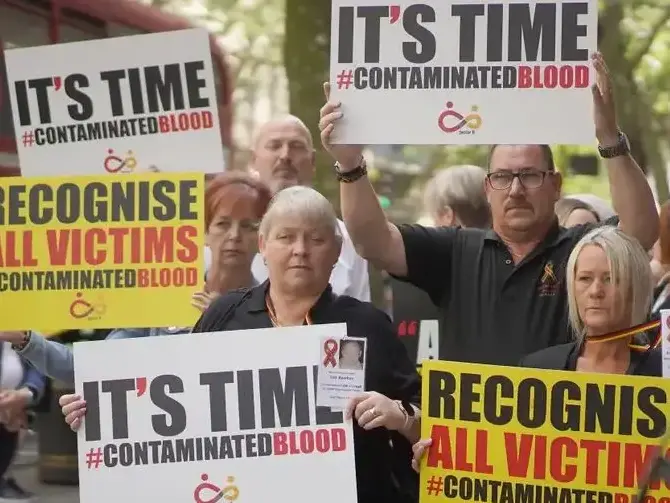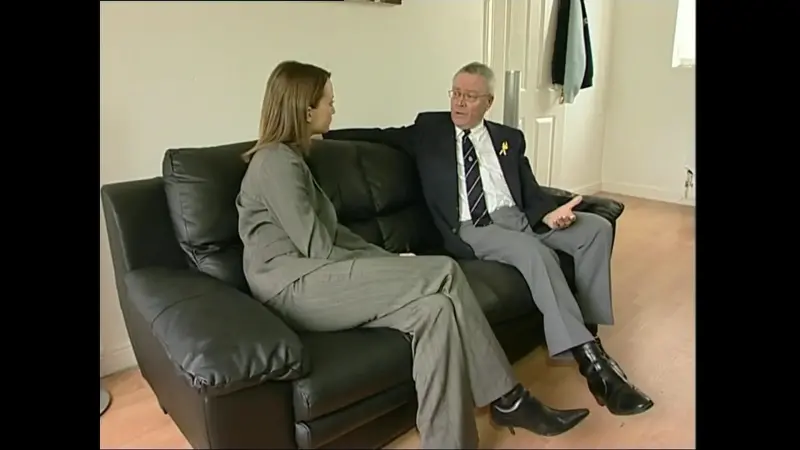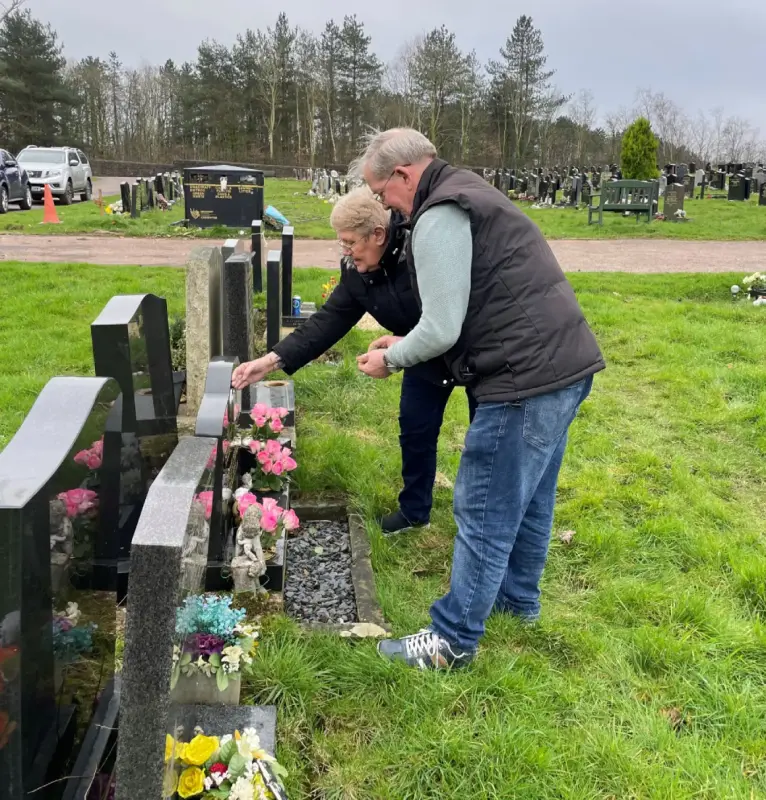
In 2007, while working as a junior reporter for ITV Granada, I was sent to meet a campaigner from Manchester called Peter Mossman. He was warm and funny, brave and dogged.
Peter had contracted hepatitis through blood products used to treat his haemophilia, and he had dedicated much of his life since to fighting to uncover the truth about how it happened, and for accountability and fair compensation. I remember being shocked by Peter’s story, and I recall him insisting the media were only scratching the surface of the scandal. I regret to say I didn’t truly comprehend the scale of the disaster.
A decade on from my first meeting with Peter, Theresa May had bowed to pressure and finally set up a public inquiry. In September 2018, and at Church House in Westminster we filmed as people infected and affected by contaminated blood filed inside in their hundreds, wearing the tri-coloured ribbon emblem that symbolised the campaign; red to represent AIDS, yellow for hepatitis, black to signify the lives lost during the decades-long fight for truth and justice.
Peter’s group Manor House had created the design in the early 1990s, but sadly he was too ill to attend the opening of the inquiry. Retired judge Sir Brian Langstaff had been appointed as the Infected Blood Inquiry Chair, and the weight of responsibility he carried was clear.
This was not the first inquiry into the scandal, but it was the first with teeth, and he had the power to compel witnesses to testify in order to uncover the truth about the biggest treatment disaster in the history of the NHS.

Peter couldn’t be there, but Colin and Jan Smith were among the crowd. I had interviewed them a few days earlier at their home in South Wales about the death of their son, Colin, in 1990. Cheeky, daring and full of mischief until the end, he loved Lego and drawing and sweets and adored his three older brothers. Colin was seven years old when he died of AIDS in his mum’s arms, weighing just two stone, having been infected with HIV through products used to treat his haemophilia.
The Smith family dealt with disgraceful abuse; AIDS was painted on their front door and scratched into their car, parents would line up at school threatening to take their children out of class. Colin Senior lost his job. Colin and Jan believed their son had been used as a guinea pig and that he died from needless treatment. They wanted accountability.
The Smith family radiate love, and their fierce devotion to Colin is something to behold. He is still an enormous part of their lives, “but not in a morbid way, he’s just here,” says Jan. She kisses his photo every night before bed and they visit his grave weekly.

Everyone deals with their trauma differently. Sue Threakall has not been back to the place where her husband Bob’s ashes are scattered – because she promised herself she wouldn’t until she had the truth about his death in 1991. “The door hasn’t closed yet,” she told me.
I ask her how much of her life she has given to campaigning and she answered, “Too much. Our son once said to me, I lost both parents to this scandal. I lost dad to AIDS and you to the campaign. It makes me feel I’ve failed as a parent. But if you don’t challenge an injustice like this, it will happen again.”
During our coverage of the Infected Blood Inquiry, we have found the scars from the stigma surrounding diseases in the 80s run deep. Sue recalls reading a letter published in the Birmingham Evening Mail. The correspondent had suggested everyone with AIDS should be sent to live on an island off Scotland. It fired her up and kicked off her campaigning. But you can also understand why many have been too fearful to tell their stories.
Gaining people’s trust has always been vital for us at Channel 5 News, and the many other journalists who have dedicated time to this story. Producer Emma Greatorex has been instrumental in our coverage. Her patience and empathy have, over time, seen her warmly welcomed by a community damaged and traumatised, and often understandably untrusting.
On 5 News we have covered the Infected Blood Inquiry regularly through all its stages over the last seven years. We reported as the witnesses moved the inquiry room to tears. We watched on as doctors, public health officials and politicians, past and present, put their accounts on the record.
With the final report approaching, Emma and I pushed for coverage commensurate with the scale and significance of the scandal. The reaction to the ITV Post Office drama helped our case. As campaigner Jason Evans, who lost his father to infected blood products, told me, it has been the “the biggest sea change” in terms of coverage, sending the message that viewers care about injustices. He has had an increasing number of requests from media and has found those in his community are becoming more willing to talk.
On Monday 20 May we will dedicate our hour-long flagship show to the Infected Blood Inquiry Final report in a 5 News Special: Bad Blood. Colin and Jan will be there for an emotional day. Will they see in black and white and officially what they have been saying for years? That people in power knew patients were at risk? That there was a culture of cover-up?
Peter Mossman will not be able to attend. Tragically he passed away in 2021, and has been mourned by his loving family and the extended family of his blood campaigners. Peter is one of more than 650 infected people who have died since the inquiry started; one every four days. There is, it was described to me, “a drum beat of funerals.” Even if there the report provides some justice, it will have come far too late for far too many.
Over the years I have felt hugely privileged to have been welcomed into the lives of people who have shared their stories with me. On Monday, as we take a deep dive into Sir Brian Langstaff’s detailed report, we will keep those people at the heart of our coverage. It’s the very least they deserve.
The 5 News Special: Bad Blood will air on Channel 5 at 5pm on Monday 20th May
Email pged@pressgazette.co.uk to point out mistakes, provide story tips or send in a letter for publication on our "Letters Page" blog
